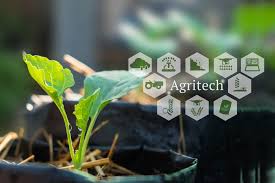Artificial intelligence and modern technology are revolutionising every sector of the Nigerian economy, but perhaps, the most transformative impact is being felt in agriculture. In a country where smallholder farmers make up the bulk of the agricultural workforce and face challenges ranging from poor access to information to erratic weather conditions, Artificial Intelligence (AI) and Technology (Tech) are offering timely and scalable solutions.
Backbone of Nigeria's economy
Agriculture remains the backbone of Nigeria’s economy, providing employment for more than 70% of the rural population. Yet, this vital sector has long been plagued by problems such as low productivity, poor storage infrastructure, limited market access, and outdated farming practices. The introduction of artificial intelligence and advanced technology tools is gradually rewriting this story.
Data-driven farming, a new dawn
Through machine learning algorithms and satellite imaging, farmers are now gaining access to real-time weather forecasts, soil analysis, crop performance data, and disease outbreak alerts. These data-driven decisions help increase crop yields and reduce losses, making farming more predictable and profitable.
Precision agriculture, less guesswork, more results
Precision agriculture is empowering farmers to manage their resources more efficiently. With drone technology, remote sensors, and global positioning system (GPS), mapping, farmers can identify specific areas of their land that require fertilizer, irrigation, or pest control. This minimises waste, conserves water, and boosts productivity; all contributing to sustainable agriculture.
Agri-fintech and digital platforms

Lack of financing has always been a major barrier to agricultural success. now, with the emergence of agri-fintech startups, smallholder farmers can access loans, crop insurance, and mobile payment solutions through user-friendly apps. digital platforms are also bridging the gap between farmers and markets, eliminating middlemen and increasing profits.
Smart irrigation and climate adaptation
Climate change poses one of the most critical threats to agriculture in Nigeria. Smart irrigation systems, powered by AI and sensors, ensure optimal use of water, helping farmers adapt to unpredictable rainfall patterns. By using data analytics, farmers are now planting crops better suited to changing climatic conditions, thereby enhancing food security in Africa.
Training, awareness, and adoption
Technology alone cannot solve the problems; its success depends on awareness and training. Several non-governmental organisation (NGOs) and government bodies are now investing in digital literacy programmes for farmers. Mobile-based advisory services, available in local languages, are simplifying the technological experience and encouraging adoption across rural communities.
The bigger picture, a future, ready sector
With technology innovations making farming more attractive, the sector is now drawing interest from youth and entrepreneurs. This shift promises to rejuvenate the ageing farming population and drive job creation, innovation, and economic development. The future of farming in Nigeria is no longer dependent on hoes and cutlasses, but on drones, apps, and algorithms – https://
A call to action
For Nigeria to fully tap into the potentials of AI and Tech in agriculture, collaboration is key. Government support, private sector investment, and farmer participation must align. This is more than a technology revolution; it’s a movement toward self-sufficiency, environmental conservation, and prosperity. The time to act is now. Let’s build a smarter, greener, and more resilient food future for Nigeria.
